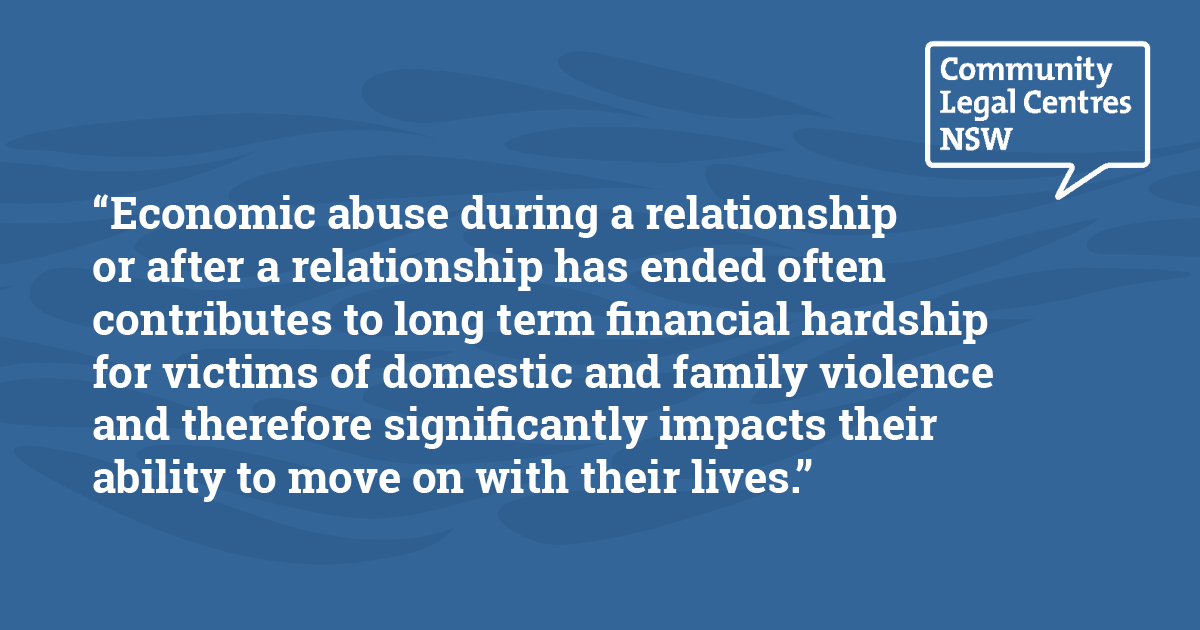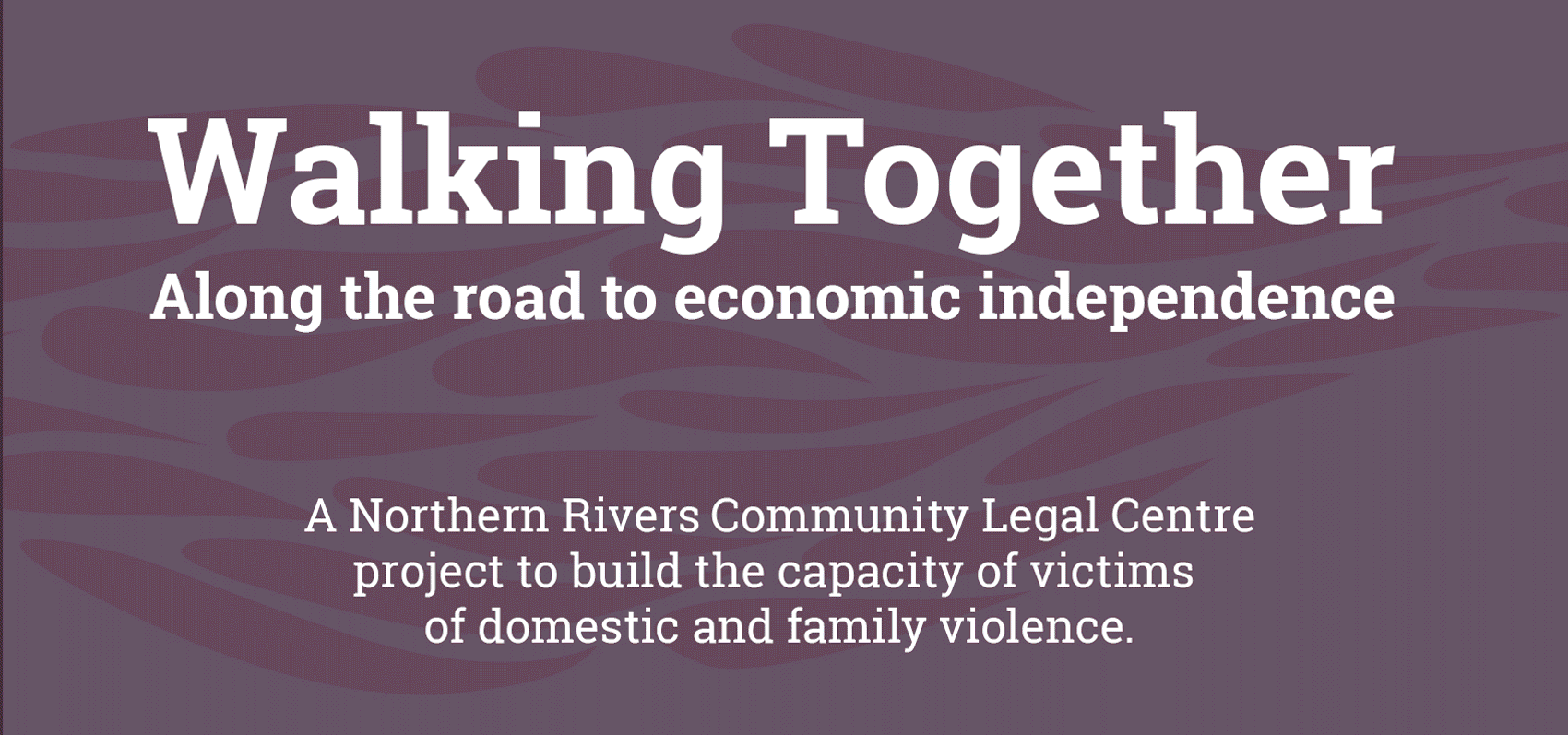
Northern Rivers Community Legal Centre has released a resource guide to help survivors of family violence resolve the negative impact of economic abuse and financial hardship.
The guide comes at the conclusion of the centre's twelve-month Walking Together Project, which sought to build the capacity of victims of domestic and family violence so they could re-establish their lives free of violence.
Download a copy of the guide here.
Economic abuse and domestic and family violence
Economic abuse is a widespread but neglected form of domestic and family violence. It is often ignored or unseen within the community and justice sectors, business and industry, and even by those personally experiencing it.
Yet, up to 90% of people who have experienced domestic and family violence experience economic abuse.
In 2011, the National Plan to Reduce Violence against Women and their Children highlighted that domestic and family violence is the leading cause of homelessness among women and children.
Sandra left an abusive relationship after many years and as a result of leaving the relationship was homeless. She had to couch surf with friends and sleep in her car whilst on the list for emergency housing.
Sandra was being pursued for a number of debts from multiple debt collectors, multiple telecommunication providers, a utility provider and had unpaid fines. Whilst all of these debts and bills were in Sandra’s name not all of them were hers as some had been accumulated by her ex-partner. Sandra was living in a state of chaos and fear and did not have the emotional capacity or resources to manage her debts. Additionally, one of the telecommunication service providers refused to allow Sandra to keep her mobile phone and cancelled her contract with additional charges.
Sandra was surviving in a state of financial hardship for over a year, attempting to find stable housing and employment whilst also being pursued for multiple debts. Additionally, because of the actions of the telecommunication service provider she was left with no phone placing her safety at even greater risk.
The Working Together Project
In January 2018, the Northern Rivers Community Legal Centre kicked off the twelve-month Working Together Project, with funding from Community Sector Banking. The project aimed to assist clients with financial matters and, as a result, support them to move towards economic independence. The project was focused on clients in the Northern Rivers region of New South Wales.
The Project sought to assist victims of domestic and family violence in three main ways.
- Casework
This involved assisting clients to liaise with debt collectors, banks, utility providers, telecommunication providers, credit providers and so on when they had a debt they were unable to pay as they were suffering from financial hardship due to violence.
- Resource
Development of the guide to be used by the national community legal centre network, so that community legal sector staff could use information, protocols, and templates to assist them with similar matters.
- Recommendations
The casework provided evidence to support practical recommendations to creditors and service providers to improve their service provision to victims of domestic and family violence.
Overall, the Project assisted 31 women who were victims of domestic and family violence and all of whom felt overwhelmed by debt.
For a summary of findings, watch the animation below.



